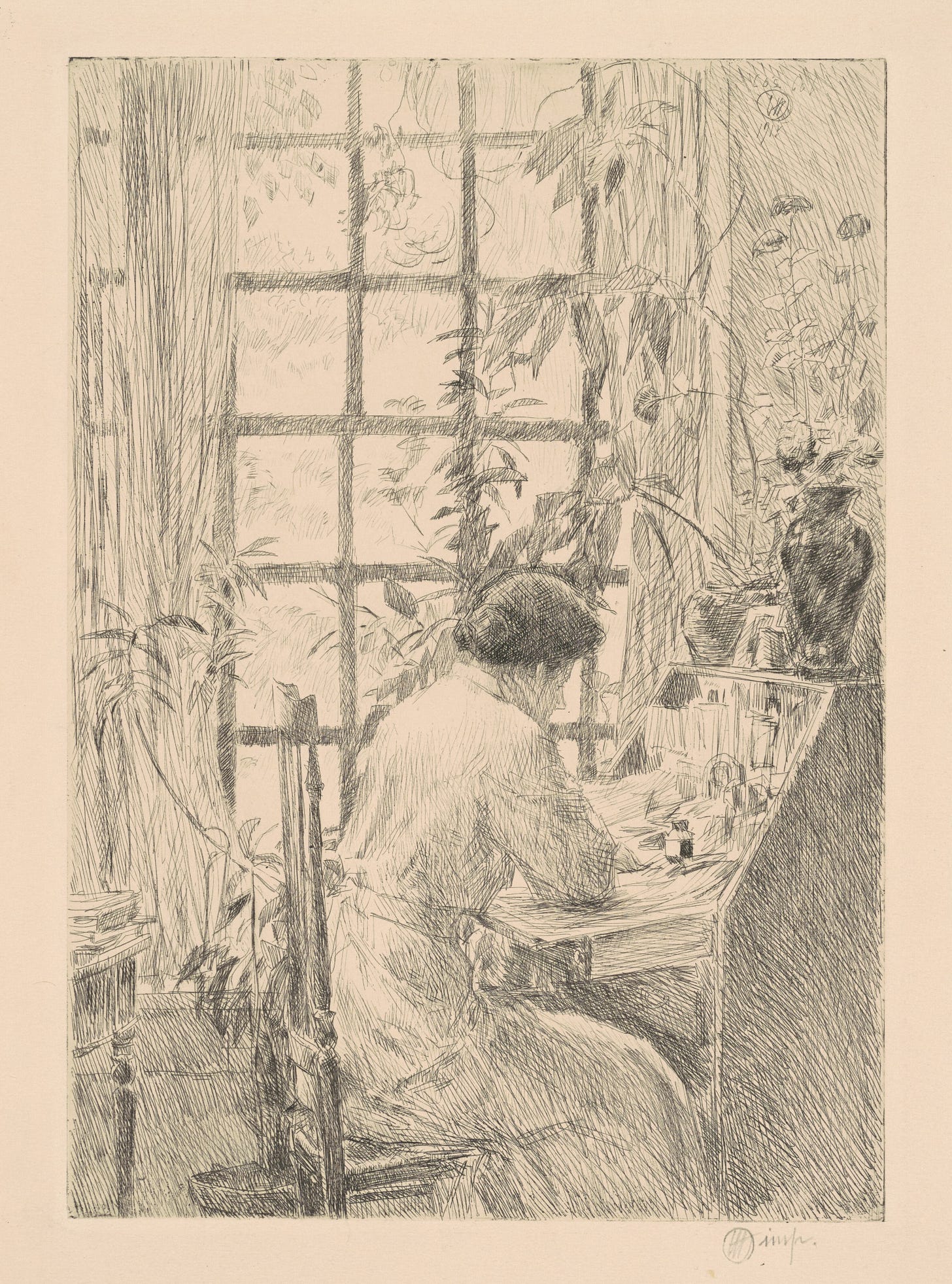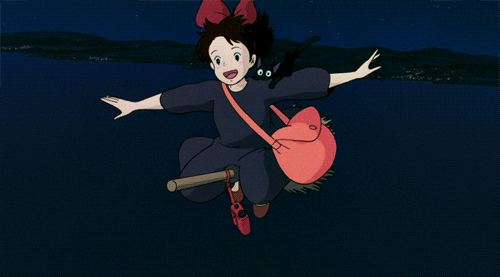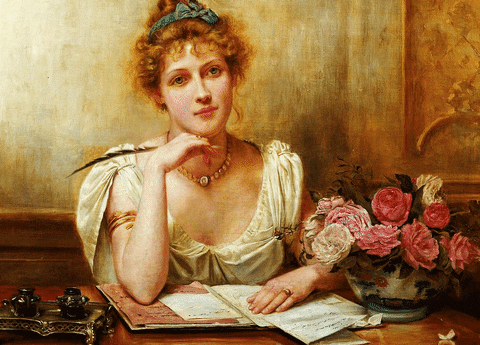Hello my lovelies,
I hope you’re having a nice summer :) This draft has been sitting in my dashboard for a couple of months now and I’ve been finding excuses every Saturday to somehow ignore the need to write.
But I’d like to profusely thank Maria Stepanova for dispelling my brain fog with her brilliant work, In Memory of Memory. It was this particular thing she said about memory, of being the family’s keeper of memory, or more precisely, to be the narrator in the family… The way in which she made this task seem possible was reason enough for me to regain some of my ability to write.

I watched Maria’s interview on the Louisiana Channel (link below) where she’s talking about her work, how the book (re)started. The book begins with the passing of her aunt Galya, who was about 80, and Maria is in her house to sort through tonnes and tonnes of her belongings.
“She was as I am, a bit of a hoarder. And she was quite a bit of a hoarder… When a person passes away the meaning of things becomes different…. they belong to no one and just like that they became devoid of any meaning. so they knew well enough, as well as I did, a good part of her belongings is just going to the dustbin in a couple of weeks time. But I’m not talking about memorabilia like diaries, of things whose meaning I could recognise but these skyscrapers of printed paper... for sure she was investing in them some meaning. So for her, it was something that kept her life intact. For me it was a devastating maze of information I’m not partial to.”
A lifetime spent collecting and hoarding and safekeeping… to what end? (Mary Oliver would tell you otherwise. :P)
Storage
When I moved from one house to another
there were many things I had no room
for. What does one do? I rented a storage
space. And filled it. Years passed.
Occasionally I went there and looked in,
but nothing happened, not a single
twinge of the heart.
As I grew older the things I cared
about grew fewer, but were more
important. So one day I undid the lock
and called the trash man. He took
everything.
I felt like the little donkey when
his burden is finally lifted. Things!
Burn them, burn them! Make a beautiful
fire! More room in your heart for love,
for the trees! For the birds who own
nothing--the reason they can fly.
-Mary Oliver
But coming back to Maria, says she has been writing this book since she was ten (!!!) and according to her, every family has two kinds of people - the ones who keep silent and the ones who tell the stories. And these storytellers, she says, are mainly women. Why? because,
“we don’t have any grand plans for posterity! but we’re talking, exchanging. It is easier for us to exist in the present tense. Never lingering, waiting for the time that is to come.”
Woah! Although grandmothers are stereotype storytellers, I never assigned this task to “women only”. The way Maria puts it is revelatory to me and I did find truth in it. We do exist in the now, most women aren’t making grand plans for posterity. It is the men who worry about sustaining the line and passing down the name, etc.
Irrespective of man/woman, I feel the possibility of doing things becomes definite only when you live in the here and now. The moral here is in not worrying about what might come next or in thinking about how things might be perceived, but in doing it now. Existing now. Existing without the “posterity” baggage.
I always knew I would someday write a book about my family, and there were even periods when this seemed to be my life's purpose (summarizing lives, collecting them into one narrative) because it was simply the case that I was the first and only person in the family who had a reason to speak facing outward, peering out from intimate family conversations as if from under a fur cap, and addressing the railway station concourse of collective experience. None of these people, not those still alive, nor those already dead, were ever seen. Life gave them no opportunity to be remembered or to remain in view, to stand briefly in the spotlight; their ordinariness put them beyond the usual human interest and this seemed unfair. There was, it felt to me, an urgency in speaking about them and on their behalf, and the endeavor frightened me.
—In Memory of Memory, Maria stepanova
Who wouldn’t be?
If you still want to (like I do), I think the only thing that might be of help is perhaps the need to do it (yes, in bold). And the feeling that only you can do it. One must believe in this strongly because every other thought will only fool you and make you seem ordinary. A good dose of ambition never hurts.
What Maria did with her aunt’s material is undeniably beautiful and makes me want to go back to my habit of (I know, I shouldn’t call a few weeks of diary writing “a habit”) journaling. In an interview she notes,
“The diaries documented the time she got up and when she went to sleep, the television programs she’d watched, the number of phone conversations she’d had, who they’d been with, what she’d eaten, whatever else she’d done. There was a minute and virtuosic avoidance of content — how she’d actually filled her hours. It might say “read,” for example, but with no mention of what the reading material had been or what it had meant to her — in fact everything in her long and exhaustively documented life was the same. Nothing indicated what this life had been for, there was nothing about herself, nothing about other people, only the fastidious details, the fixing of the passing of time with the exactitude of a medieval chronicler.”
Diaries and letters of writers, poets and artists are of great value to understand what kind of lives they lived, how their minds worked, etc. But there’s also value in the mundane. In fact, I bought a diary last year dedicated to mundane chronicling— What I did, what I ate, what I read or watched, how much money I spent, etc. While it’s unfortunate that the “habit” didn’t extend beyond April, I found satisfaction in putting down ordinary things on paper.

My uncle who passed away when I was eight had the habit of writing diaries. While my grandmother, in her grief, destroyed most of it, a couple of them managed to find their way to me. One of it is from the year I was born and on the date on my birth I found a few lines. He had written that his sister gave birth to a girl at 2.34 in the afternoon and that he bought boxes of chocolates for all the children in his van (he ran a school van service in the nineties). He left to deliver the message to my father’s family and then returned. That was all there was to it.
And I always find such joy in reading it.
The Orange
At lunchtime I bought a huge orange—
The size of it made us all laugh.
I peeled it and shared it with Robert and Dave—
They got quarters and I had a half.
And that orange, it made me so happy,
As ordinary things often do
Just lately. The shopping. A walk in the park.
This is peace and contentment. It’s new.
The rest of the day was quite easy.
I did all the jobs on my list
And enjoyed them and had some time over.
I love you. I’m glad I exist.
— Wendy Cope 



Oh, I loved reading through this!